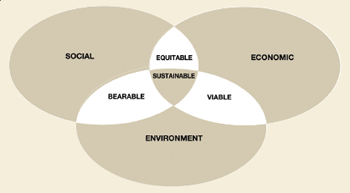I will be adding to this post over the weekend:
Christian pacifism rests not on a naïve belief that if we would only lay down our arms, the other side would do the same. It does not deny that sin has distorted the world; it does not presume that the enemy will be moved by our gestures of peace. It does not suppose that we can always reach a peaceful solution through diplomatic channels. It doesn't deny that in the face of genocide peaceful diplomacy may only provide time for the aggressors to carry out their evil plan. Christians do not become pacifists because they believe it will "work" better. In fact, it will likely make the world more violent, because in some instances it is only the threat of violence that holds violence in check.One of the books recommended by my professor and Melanie deals with the spiritual and pragmatic responsibilities of Christians in their social settings, particularly those of privilege. There is, of course, a lot of justification for violence across all classes; and it seems to follow that when pacifistic, or at least the nonviolent, argument ensues in scholastic (and by nature privileged) circles, it often comes from a young group of idealistic, educated men and women who never have, and probably never will, face a situation where violence seems a reasonable or even urgent as a course of action. We are just simply too well insulated to engage.
The only reason for a Christian to be a pacifist is that one truly believes that God has made peace with the world in Christ and that God is making peace in the world through our faithful nonviolence. Only if God is actively guiding the world to its harmonious end can Christians risk imitating the nonviolence of Jesus. The point of renouncing violence, then, is not as a strategy for peace but as a witness to the world of the peace that is coming.
I want to be careful that I am finding my answers to the question of Christian action in the Word - NOT (exclusively) in extra Biblical sources, NOT in my limited & privileged experiences, and certainly NOT in pragmatism - however, these books examining Christian hospitality (the topic of my thesis) expound on the themes of violence across the OT & NT by virtue of addressing human and societal interaction and, in context to Scripture, provide an picture of the relationship between God to humanity and humanity to humanity.
What killed was not irreligion, but religion itself; not lawlessness, but precisely the Law; not anarchy, but the upholders of order. It was not the bestial but those considered best who crucified the one in whom divine Wisdom was visibly incarnate. And because he was not only innocent, but the very embodiment of true religion, true law, and true order, this victim exposed their sacrificial violence for what it was: not the defense of society, but an attack against God... His arraignment, trial, crucifixion, and death also stripped the scapegoating mechanism of its sacred aura and exposed it for what it was: legalized murder...This, like the previous quote is just some food for thought. The following chapter in book addresses some more solid answers.
...The God whom Jesus reveals refrains from all forms of reprisal. God does not endorse holy wars or just wars. God does not sanction religions of violence. Only by being driven out by violence could God signal to humanity that the divine is nonviolent and is opposed to the kingdom of violence. As twentieth-century mystic Simone Weil put it, the false God changes suffering into violence, the true God changes violence into suffering. To be the true God's offspring requires the unconditional renunciation of violence. The reign of God means the elimination of every form of violence between individuals and nations. This is a realm and a possibility of which those imprisoned by their trust in violence cannot even conceive.From "Breaking the Spiral of Violence" in The Powers That Be
Matt & I have often had a hypothetical discussion that begins like this, "What would you do if a person with a gun was trying to kick in the door of your neighbor's house?" The premise tries to set up the person being questioned to face the dilemma of resorting to violence to save their neighbor. It creates and equation that assumes that violent action against one saves another and asks, is this worth it? What does a Christian say to this? Are we having to choose which person is more deserving of life? Could we go so far as to even question the eternal state of the perpetrator with a gun and desire to extend the invitation to Christ to them? Is that still important in this very moment? Is it even our place to interfere? Does the potential victim have a specific place in the Kingdom that calls us to action? Do these Christian "obligations" (although they are not, they are choices) conflict?
The agony I allow myself to feel over this situation I can only hope might prepare to act in wisdom should I ever face it. But the only rest that I can find in any answer is that of martyrdom - but should that fail to stop the oppressor from pursuing his or her victim then I choose action NOW, in prayer and in light of and in spite of whatever outcome I could hypothetically foresee. Matt and I have resolved to call on God in such cases, call for intervention now and for the future. We call this "the third option" and it is the topic of Wink's next chapter.



























